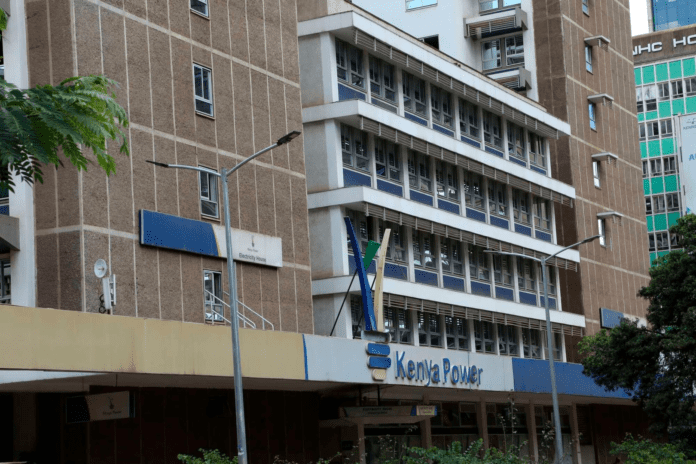A fierce standoff has erupted between Kenya Power and Lighting Company (KPLC) and the Nairobi City County Government (NCCG) over financial disputes, with the utility firm rejecting the county’s demand for Ksh. 4.8 billion in wayleave fees while insisting on the settlement of a Ksh. 3 billion electricity bill.
The escalating conflict saw county officials storm KPLC’s headquarters at Stima Plaza on Monday morning, dumping garbage at its main entrance, blocking access points, and clamping vehicles. According to KPLC, the officials were accompanied by armed police officers who also arrested several employees, leaving some with injuries.
KPLC has strongly condemned the county’s actions, terming them “unethical, unprofessional, and unlawful.”
In a statement, the company maintained that it operates within legal provisions and cited Section 223 of the Energy Act, 2019, which bars public bodies from imposing levies on energy infrastructure without written approval from the Cabinet Secretary.
The power distributor further accused the county of failing to honor a structured repayment plan agreed upon in December 2024, in which Governor Johnson Sakaja had pledged to remit Ksh. 60 million for old debts and Ksh. 50 million for current bills every month.
However, KPLC stated that the county only paid Ksh. 36 million in January 2025—far below the required Ksh. 330 million to cover three months of bills.
“In January, Nairobi County paid just Ksh. 36 million instead of the Ksh. 330 million needed to clear arrears from November, December, and January,” the company stated.
Following what it described as failed negotiations, KPLC proceeded to disconnect power from several county facilities on February 14, 2025. Days later, in apparent retaliation, Nairobi City Water and Sewerage Company cut water supply to KPLC’s premises, including Stima Plaza, Electricity House, and substations in Parklands and Roysambu, despite the company having no pending water bills.
The county, however, insists KPLC has been in violation of Legal Notice No. 4894 of 2001, which mandates service providers to pay wayleave fees for using public land and infrastructure for their utility lines.
Nairobi County Secretary Godfrey Akumali claimed the company had ignored multiple demands for payment dating back to 2002.
“The same KPLC aggressively pursues payments from its customers but refuses to pay the county its rightful dues,” Akumali argued, adding that the power distributor has also been profiting from leasing its utility poles to internet service providers such as Liquid Intelligent Technologies, Telkom Kenya, and Safaricom without remitting the required wayleave fees.
County officials have vowed to withhold essential services, including garbage collection, until KPLC settles the disputed fees.
Meanwhile, KPLC has reiterated its position, urging the county to clear its Ksh. 3 billion electricity bill, warning that all customers must meet their payment obligations to sustain the energy sector.
“The county must lead by example. The power sector relies on timely payments, and no entity should be exempt,” KPLC emphasized.
The dispute now remains unresolved, with both parties standing their ground, as city residents brace for potential disruptions should the standoff continue.






![SHA Suspends Dozens of Health Facilities Over Alleged Fraud [LIST]](https://citymirror.ke/wp-content/uploads/2024/12/image-14-218x150.png)
